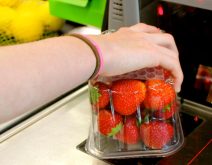It’s annual meeting season, and one of the highlights for me are the updates on marketing efforts and consumer outreach.
I’ve attended numerous annual meetings for commodity organizations in Ontario and Canada, and I’m amazed at the exciting and creative approaches some organizations take to reach consumers.
Highlighting the farmer or farmers who produce agricultural products has been the focus of many campaigns in the last decade. Educating consumers on animal husbandry or farm production methods is also a marketing focal point.
Read Also

Canada seventh-most influential country on agri-food
Report from Dalhousie University and MNP shows Canada ranks seventh among G20 countries on agri-food influence.
Annual research from organizations, such as the Canadian Centre for Food Integrity, shows that consumers trust information given by farmers more than from other sources.
Unfortunately, the same research has shown that agriculture is losing public trust.
Have these strategies been working?
I think so, but only for the consumers interested in knowing how their food is grown and who grows it. And most importantly, they must want to eat it in the first place.
If someone is emotionally or morally opposed to eating meat or broccoli, farmer influence or educational tactics aren’t going to change that.
As a kid in the 1980s, I don’t recall ever seeing a farmer or farm on a food commercial. If I did, it was usually the stereotype of a farmer in overalls and a pitchfork, standing beside a cow or a horse.
Back then, the meat industry or food companies that sold animal-based products didn’t have to compete with plant-based ‘meat’ or ‘dairy’ or other non-meat options. They only had to compete with other products within their categories.
Remember the “Put pork on your fork” from Ontario Pork and Wendy’s “Where’s the beef” television commercials? I remember them so well because they were catchy, funny and focused on only one thing — selling a product.
I thought of these commercials when I read a recent post by Janette Barnard, the associate director of Merck Animal Health Ventures, in her weekly newsletter “Prime Future.” She writes about innovation in the animal protein value chain.
The article, titled “Let’s not kid ourselves — two narratives that need to go”, speaks about dropping the “agriculture industry needs to educate consumers,” and the “farmers need to be thanked” narratives.
Barnard said we shouldn’t thank farmers because we don’t thank other providers such as plumbers or electricians.
Thanking farmers, she said, “egregiously flips the narrative from ‘what have I done lately for my customers?’ to ‘what have my customers done lately for me?’”
She said farmers farm to have an income, a lifestyle they like, preserve land, etc. They don’t do it so they can be thanked.
Fair enough, but I think farmers are an essential part of the industry narrative. They may not expect to be thanked but they do want to be appreciated and not attacked on social media if they raise animals. They are an important part of the value chain and should be included in marketing messaging where appropriate.
Barnard reasons that the narrative about educating consumers is destructive because it demands that consumers understand 100+ years of agricultural research “backing up every aspect of how we produce food.” It burdens them to learn things when they may have no interest.
It also assumes “that once consumers know what we know, then they’ll see it our way.
“I’m convinced the mentality behind these two ideas is what keeps folks complaining that it’s not how it used to be, instead of finding the opportunity in how it will be,” Barnard writes.
The alternative narrative, she says, is one “that every free market enterprise in the world has to do” — create, market and capture new value.
I think the agriculture industry is starting to do that. A great example of this is what the Dairy Farmers of Ontario (DFO) has been doing this year.
At its recent annual meeting, DFO CEO Cheryl Smith gave an overview of the organization’s marketing campaigns and the successful return on investment these campaigns achieved.
Part of the social media campaign was targeted specifically at one consumer segment — Gen Z — that tends to favour plant-based options but will include dairy in their diet if shown the benefits in certain life scenarios.
To further capture the “moments” that Gen Zs are more likely to eat dairy, DFO created Pick- Me-Ups by MilkUP, the province’s first post-to-pay pop-up shop in collaboration with some of Gen Z’s favourite local brands.
Smith said DFO worked with local makers and collaborators who each created limited edition, milk-inspired goods and artworks to celebrate a shared local story in a way that resonates with Ontario Gen Z consumers. It was such a success that it garnered more than 1.1 million organic hashtag views and 10 million earned media impressions.
The DFO focused on the value proposition and did it in a creative way while understanding that it wasn’t going to convert the vegans of the world. However, it can remind those who may not always choose dairy to include it in their diet a little more often.
Maybe we need to focus a little less as an industry on educating consumers about what we do, and why, and focus on what we produce and why it’s good for people.















